13 Reasons Why…Not (Blog Episode 2)
Did you know schools are giving out overdose prevention response training and kits to our children at school? So, that if they are in a situation where there might be someone over-dosing they can use their training and their kit (which consists of a needle and medication) to help the person overdosing.

If schools feel it’s their responsibility to give this training and these kits, I’m confident they can be giving mental health training and tool kits as well.
This Episode of 13 Reasons Why…Not is what we, as parents, can expect schools to do to help in situations like the ones presented in the Netflix Series, 13 Reasons Why. (Please read Blog Episode 1 to become more familiar with what situations I’m referring to.)
Substance abuse, bullying, slut shaming, physical violence, rape and suicide exist, as does mental illness. Most of these have been around since the start of time. Life isn’t always fair or just. And you can guarantee your kids have experienced or engaged in the activities that are presented in 13 Reasons Why. As this is their reality, now they need to know where to turn to for help. School should be one of these places. Let’s explore how as I’d like to help our kids make different choices then the ones in the show, and to do this, we need to be informed and educated about the issues. I’m using this show is a platform to start talking about what’s broken in our school system, in our communities and in our homes. This time might be even more relevant to discuss it as with the power of social media, effects can be more damaging in the blink of an eye or the push of a button.
Schools are where young people spend most of their day. They may spend more time with their friends and teachers than they do with their parents! It’s where friendships happen and where relationships form. It’s where teens find their self-worth – in popularity, in sports, in achievement. Guess what? It’s also a breeding ground for the exact opposite to happen.
Schools have an amazing platform to reach huge numbers of kids to talk about these all-important issues. And yet, most don’t. In my book, Parenting…With A Twist, I have a whole chapter entitled “More Than A Fighting Chance.” In reading it, you will come to understand that your children need more than just their school education to come out a well-adjust adult ready to face “the real world”. The good thing is that you will now have this guidance, and of course you can always get my book!
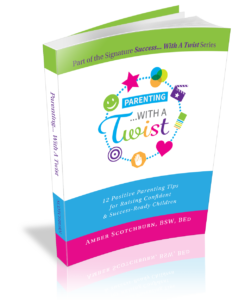
Where does your child receive information about mental health?
It’s unfortunate as it seems like kids need to get to a breaking point, like attempting suicide or something equally damaging, before information about mental health is brought to their attention. Mental health education needs to be a part of your child’s education experience, just as physical health is, just as mathematics is. So, just like they learn algebra, they should learn about how to be mentally healthy. Hmm…what skills do you use more as an adult?!
When we ignore mental health, we lose kids to a whole plethora of unhealthy choices, one of them being suicide as without the proper education, they may get to a point that suicide feels like their only option.
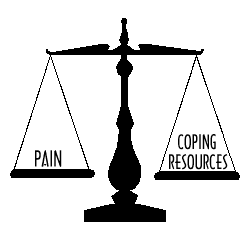
Lessons need to discuss mental health as something we all have to work on, teaching children relevant skills such as dealing with stress and change, understanding their own moods and thoughts, and recognizing when to ask for help. If your child is not receiving this education at home and you don’t feel equipped to walk them through it, then find someone in your community who can J!
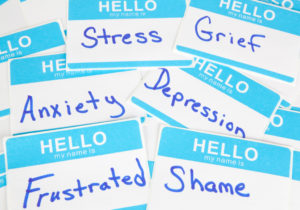
Who is your child’s advocate or cheerleader?
I consider myself a fairly astute parent, given that I have a social work and an education degree and have taught in the system. I’m also involved in my own children’s day-to-day life, as well as the vast number of tutoring families that we have helped over the years. I feel that given all of that, I know how to identify and advocate for what’s needed for a child to excel! However, when my own children experienced some mental health concerns, I was told that unless they were red flagged that support services weren’t available to them. So, again, unless a child is already exhibiting behaviours that are deemed unacceptable, they are not given the help they need.
This leads me to suggest that all school personal need to have mental health training as well. So that they know what to look for and then how to respond appropriately as this did not happen in the Netflix series 13 Reasons Why, nor has it happened in most of the cases I have worked through.
That said, we still need to help our children identify who can be their advocates at school. There are teachers, teachers aides, principals, vice principals, counselors, social workers and child and youth workers to name a few! Work with your child on finding at least one person that they can identify as a safe person at school.

Examine their school environment to see who this could be? You want someone who is going to be their cheerleader! Helping your child identify who the are in their world will provide them with a healthy place to go when they need support. Their confidence will rise when they can point out their cheerleaders—people who believe they can do it, support them in getting there, and lift them back up when they fall. In our tutoring agency, we refer to ourselves as Math Coaches and Reading Cheerleaders!
Beyond school, look for other advocates for your child. Ensure that your child has people in their world that they can open up to that judge their behaviour but not them. Kids need unconditional love. Hopefully this can be you! We will talk about your role as a parent in this capacity in another episode.
Are Your Children Allowed to Say “No” or Negotiate?
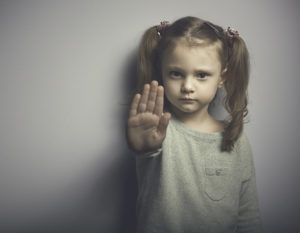
Does your child know how to say no or change their mind…with confidence, ease and even some humour thrown in? Our society is set up to teach children to be people pleasers: to always say “Yes” to their parents, teachers, and other people of authority. And we label a child as a troublemaker when they say “No.”
Then the child turns into a teen and we want them to “Just say no.” when they get into awkward, intense, potentially life-changing situations. Like, “Just say no” to drugs. Or, “Just say no” to sex. Or, “Just say no” to drinking and driving and more currently, texting and driving. In all of these conversations, we emphasize that they understand why they need to say “No.” For example, drinking and driving can lead to the wrecked car they show us every year at the “Just Say No Drinking & Driving” assembly. Now they even take kids to the morgue to really drill the point in as to why you shouldn’t drink and drive. However, statistics would suggest that people still drink and drive, even adults.
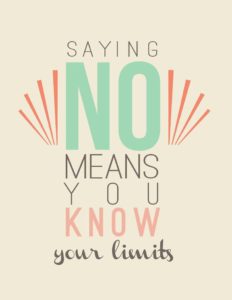
So, kids can recite back to us the ‘why’ of not doing something, but where do our kids get to practice the just saying no. The times where your child has practiced saying no to you, I’m sure hasn’t gone over very well. What about when they’ve said it to their teacher or a coach?
Ensure your kids understand that it’s ok to say “no” to authority figures in their world. Oh and next up, there will be an episode on how to accept this as a parent as well!
Get Curious, Not Punitive!
Get curious with your children and empathetic to where they are at in their lives. Ask questions! Find out what makes them tick! Find out their ‘why’! You will have many opportunities to change a mood and select your words, but there isn’t an opportunity to replace your words once they’ve escaped. So choose wisely!
There doesn’t have to be blind trust in your child’s teacher or any another key influencer as they are not the experts on your child. So, get curious with the people in your child’s world as well! For example, if a problem arises at school: Ask for their evidence of what it is they are suggesting is the issue. Ask why they think it’s happening. Ask for other opinions to be taken into consideration. Ask for other possible factors that could be contributing.
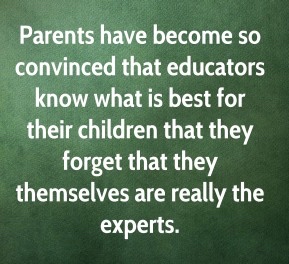
Running a tutoring agency, we get the calls from parents where the school has suggested that there is “something wrong” with a child. We right away train our parents to get curious! In getting curious, you can start to see if there are any patterns in your child’s behaviours. For example: if the behaviour happens in one environment and not another, what is the root cause of the behaviour? What can we change to make the environment a safe place for your child?
Since school is where children spend most of their childhood, I urge you to engage with the school. I would suggest you introduce yourself to your child’s teacher prior to teacher-parent conferences. Check in with them about what would work best to keep in regular contact: email, agenda, phone call. If you only start engaging when your child is in trouble, then you haven’t developed a rapport to begin to build bridges. Plan to volunteer at school! There are many opportunities with various time commitments. Research shows that students thrive, whose parents volunteer at school. In my book, under the workbook section, we lay out the steps to forming solid relationships with your child’s teacher.
Are You “Happy…Just Because”?
The line of success is not straight and not without its intense moments. Sometimes it’s caused by our own actions and reactions and other times by things out of our control. Life is just like that.
When you are thinking about reaching your parenting hopes, wishes and dreams, just remember, it won’t be smooth sailing. Be ready for some choppy waters along the way.
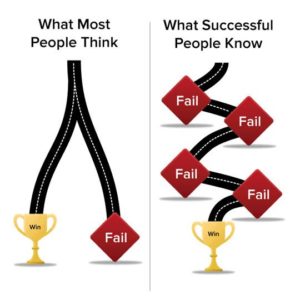
You have this same choice in life. People aren’t going to always like you, including your kids and yourself, but you have a choice to live in that moment or not. When you shift to being happy ‘just because,’ you won’t be waiting your whole life for something to happen, a whole list of things to be happy about, or for somebody else’s approval. You will be living life on your terms!
Mental health means striking a balance in all aspects of your life: social, physical, spiritual, emotional, economic, and mental. Reaching a balance is a learning process. At times, you may tip the balance too much in one direction and have to find your footing again. Your personal balance will be unique, and your challenge will be to stay mentally and emotionally healthy by keeping that balance. As well, you will want to be able to ‘Be Happy…Just Because’ no matter what life brings. You aren’t waiting for something to happen to make you happy or having your happiness taken away just because something doesn’t go your way.
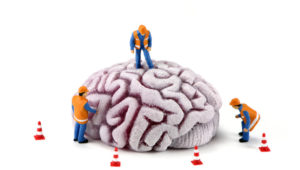
How do we get our child to the point of being happy…just because, no matter what is happening around them and who they are dealing with? By teaching them to realize that they only have control over their own reactions. They cannot control the other person’s negativity or anxiousness, but they can control their reaction to it.
Throughout our life, we deal with people who are going to rub us the wrong way. The key is to treat what they are saying as if it’s exactly what you want to hear. When you are asking your child to get ready for bed and they give you some attitude about it, take their tone, language, volume, etc. out of it and pretend they are saying: “Of course I’ll go get ready for bed.” Then, continue the conversation with them. When you don’t fuel the fire, it has nowhere to go but out! I use this strategy with my youngest son who can get fiery quite quickly. It works almost every time. I’ve been doing this with him for a while, simply because I didn’t know how else to deal with his anger. Anger is so opposite to my being that I had to learn to remove the emotion and speak to him as though he’d just said exactly what I wanted to hear. What’s great about this too is that I’m role modeling for him what to do when he gets angry in the future or somebody raises their voice to him.
When using the above strategy doesn’t work, I use humour. Just as you wouldn’t fight fire with fire, you’d use water; it’s the same principle. My humour is genuine; it’s not sarcasm because I want to calm the fire, not inflame it.
Another way to deflect another’s emotional state is to simply say the way the person is feeling back to them, not taking responsibility for their feelings, but in acknowledgement of them. You are not responsible for another’s feelings but to acknowledge them is a loving act of compassion!
Yes, you have permission to be happy without having to accomplish or obtain the next ten things on your To Do lists ;)!

Look for our next episode on 13 Reasons Why…NOT!
Trackback from your site.
Recent Comments
-

Amber Scotchburn
I would love to keep sharing information with you!
Please let me know what else you would like to hear about,
Amber -

Amber Scotchburn
Thank you :)!
Where did you share this?
Amber -

Amber Scotchburn
Thanks :)!
I’d love you to put the link to the results that you found about the Mid East, perhaps I can put it in a future podcast.
Amber -
Google
Google
Wonderful story, reckoned we could combine a handful of unrelated data, nevertheless definitely worth taking a search, whoa did 1 find out about Mid East has got additional problerms too.
-
Google
Google
Here is a good Blog You may Locate Interesting that we encourage you to visit.


